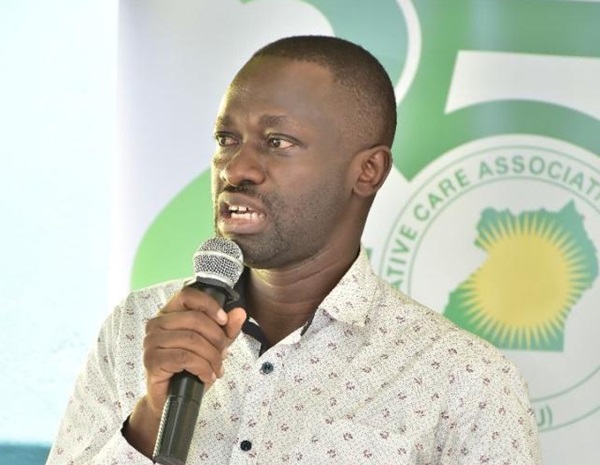
Masaka, Uganda | THE INDEPENDENT | Families grieving for relatives who succumb to terminal illnesses can benefit from a new grief and bereavement care service being piloted by palliative care providers.
According to Iddi Matovu, a Public Health Specialist at Kitovu Mobile, a palliative care provider that’s piloting the care in Masaka, they embarked on research on how to support caregivers and relatives, having realized that many are plunged into agony and sometimes full-blown mental illness after loss.
Matovu says the facility lost 35 clients who were under palliative care last year and they have since trained community health workers to help them after working with clinical psychologists in Zimbabwe to come up with a bereavement packages.
He says the aim is to avert the increasing number of people developing mental illness partly due to failure to come to terms with such losses.
Mark Donald Mwesiga the Executive Director at the Palliative Care Association of Uganda (PCAU) said bereavement care comes in handy at a time when the cultural fabric of mourning is breaking down due to changes in the social – economic set up of the country.
Mwesiga who was speaking on the sidelines of a donation event organized by PCAU as part of their 25th anniversary noted that while this care has not been very pronounced, they have been equipping palliative care providers with such skills to support families going through difficult moments by partly providing them with appropriate counseling.
Already, he says, several hospices are collecting data which will be reviewed to guide the rollout of this care throughout the country.
Rev. Canon Diana Nkesiga says the need for such care started at the peak of HIV when a lot of people were dying at the same time not allowing the clergy enough time to guide caregivers and relatives through the grieving process as they were burying one person after the other. As a result, a lot of pressure was put on grandmothers and eventually, researchers found, that many were dying of stress.
For Nkesiga, the kind of bereavement care to be given should be targeted at individual needs noting that a mother who has lost a kid needs a different intervention from a teenager or a baby who has lost a parent. She notes that grief can simply be informed by offering a listening ear, helping them deal with anger, or encouraging the caregiver or relative to practice self-care.
Through her interaction with children who had lost parents due to HIV while working for a hospice in South Africa, Nkesiga says she wrote a small book to help with grieving called ‘ Talking to God when life is not fair’. She says she saw a lot of children overcome their pain and have healthier adjustments.
Meanwhile, apart from providers offering this kind of care within the larger palliative care package, this kind of therapy is also catching on as private providers have also embarked on starting grief clinics.
***
URN
 The Independent Uganda: You get the Truth we Pay the Price
The Independent Uganda: You get the Truth we Pay the Price


